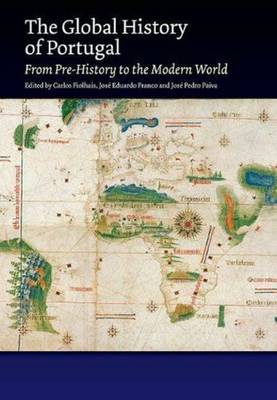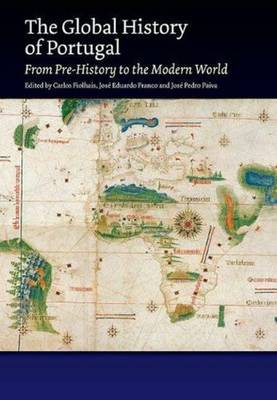
- Retrait gratuit dans votre magasin Club
- 7.000.000 titres dans notre catalogue
- Payer en toute sécurité
- Toujours un magasin près de chez vous
- Retrait gratuit dans votre magasin Club
- 7.000.0000 titres dans notre catalogue
- Payer en toute sécurité
- Toujours un magasin près de chez vous
The Global History of Portugal
From Pre-History to the Modern World
132,95 €
+ 265 points
Description
For thousands of years, Portugal has been the point of arrival and departure for peoples, cultures, languages, ideas, fashions, behaviours, beliefs, institutions and produce. While its miscegenation and global multimodal activity enriched the world in many ways, it also provoked violence, war, suffering and resistance. The Global History of Portugal contains 93 chapters grouped into five parts: Pre-history, Antiquity, Middle Ages, Early Modern period and Modern World. Each chapter begins with an event, interpreted in the light of global history. Each part opens with an introduction, offering a perspective of the period in question. The three Editors, five Scientific Coordinators (João Luís Cardoso, Carlos Fabião, Bernardo Vasconcelos e Sousa, Catia Antunes and António Costa Pinto) and ninety Contributors offer a critical and analytical synthesis of the history that originated in Portuguese territory or passed through it, stimulating the process of encounter and dis-encounter in todays global world. The history presented gives special attention to the world that moulded Portugal and the Portuguese, and to the ways Portugal configured the world. It seeks to identify and understand the transversal entanglements of historic impact and the impulses these gave to the construction of Portugal and the world. Contemporary reflection and academic scholarship on the global history of leading nations has stimulated a rethinking of the past and a more comprehensive recognition of legacy. Historians can no longer overlook the wider world with which their country of investigation has interacted. Portugal's role in the dynamic circulation of peoples and ideas makes it global history not only unique by way of what took place but also in terms of a potential academic template for better understanding of how the past shapes the present, and more particularly the importance of acknowledging a country's past historic mis-steps and how these are dealt with by contemporary populations.
Spécifications
Parties prenantes
- Editeur:
Contenu
- Nombre de pages :
- 460
- Langue:
- Anglais
- Collection :
Caractéristiques
- EAN:
- 9781789761030
- Date de parution :
- 06-12-21
- Format:
- Livre relié
- Format numérique:
- Genaaid
- Dimensions :
- 172 mm x 248 mm
- Poids :
- 861 g

Les avis
Nous publions uniquement les avis qui respectent les conditions requises. Consultez nos conditions pour les avis.





